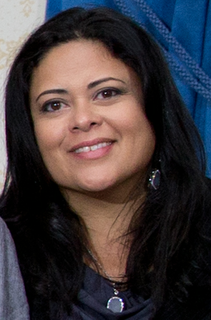A Quote by Maya Soetoro-Ng
I think it's true we look forward to enormous amounts of information, but I think we would be better off if we thought about the kinds of wisdom and thoughtfulness that we need in order to handle the amount of information ahead.
Related Quotes
Most people think visual information is more important than aural information - like, what's this big deal about sound? And why should I bother to listen, rather than look? And here are the facts: there are blind species, in the backs of the caves, the bottoms of the oceans. It's not essential on planet Earth to be able to see, to be a species. But there are no deaf animal species. You have to be able to hear, or you won't get the information you need in order to survive.
I don't think we should have less information in the world. The information age has yielded great advances in medicine, agriculture, transportation and many other fields. But the problem is twofold. One, we are assaulted with more information than any one of us can handle. Two, beyond the overload, too much information often leads to bad decisions.
I think we are definitely suffering from an information overload, but I believe that there is going to be better and better ways of organizing that information and processing it so that it will enhance your daily life. I just think that technology and information, it's overwhelming at the moment, but it's really going to make life better.
Washington is a town where there's all kinds of allegations. You've heard much of the allegations. And if people have got solid information, please come forward with it. And that would be people inside the information who are the so-called anonymous sources, or people outside the information - outside the administration.
Consider: The human genome consists of about 3.3 billion base pairs. Since there are only four types of pair, that amounts to 0.8 gigabytes of information, or about what you can fit on a CD. With a microwave radio transmitter, you could beam that amount of information into space in a few minutes, and have it travel to anyone at light speed.
I think America is less safe on a lot fronts, and I disagree with the release of the information from Dianne Feinstein. I think she's as much a traitor to this country at this point as I thought about Edward Snowden and his release of information about other investigations and abilities from an intelligence standpoint.
Information wants to be free.' So goes the saying. Stewart Brand, the founder of the Whole Earth Catalog, seems to have said it first.I say that information doesn't deserve to be free.Cybernetic totalists love to think of the stuff as if it were alive and had its own ideas and ambitions. But what if information is inanimate? What if it's even less than inanimate, a mere artifact of human thought? What if only humans are real, and information is not?...Information is alienated experience.
Data isn't information. ... Information, unlike data, is useful. While there's a gulf between data and information, there's a wide ocean between information and knowledge. What turns the gears in our brains isn't information, but ideas, inventions, and inspiration. Knowledge-not information-implies understanding. And beyond knowledge lies what we should be seeking: wisdom.




































